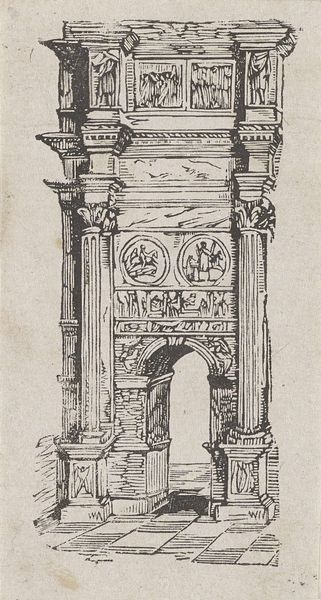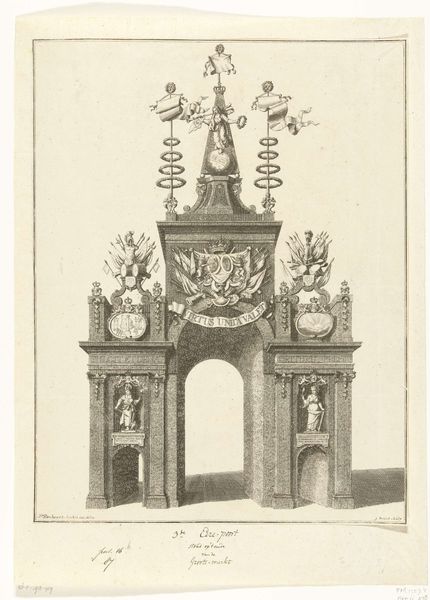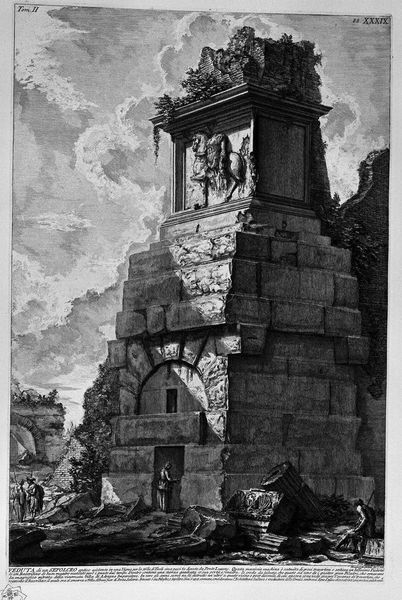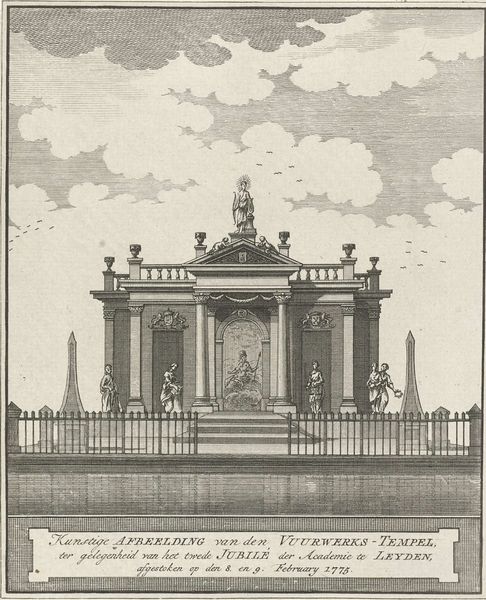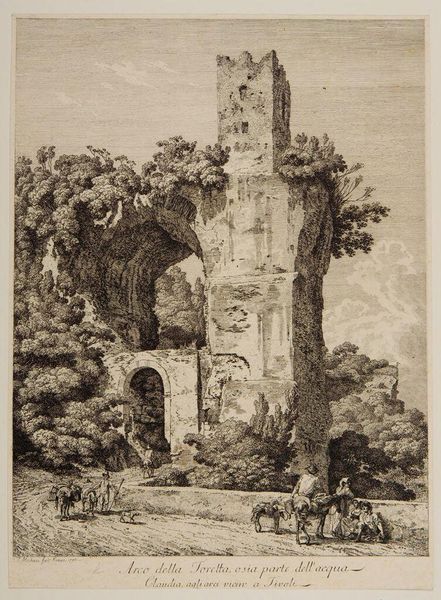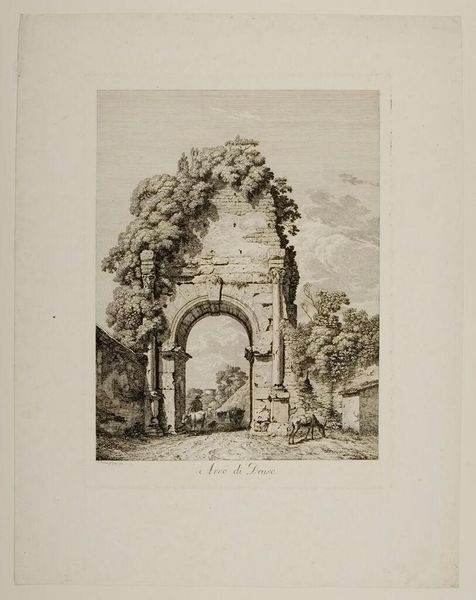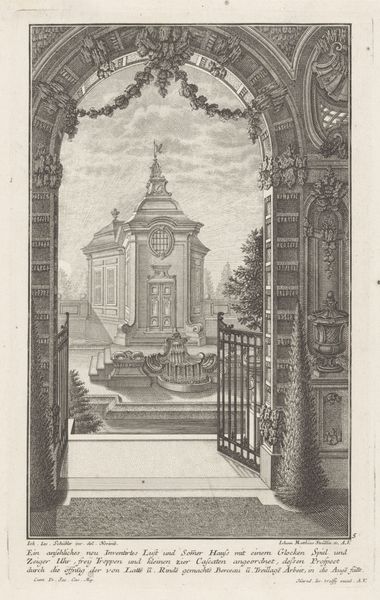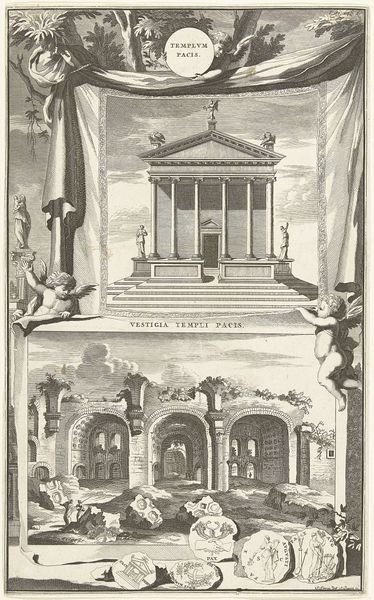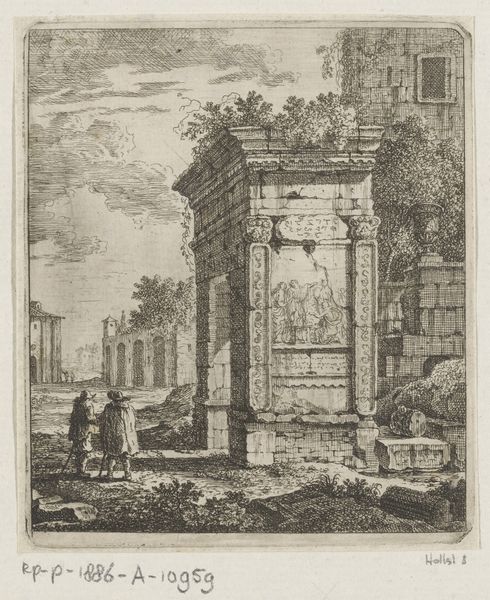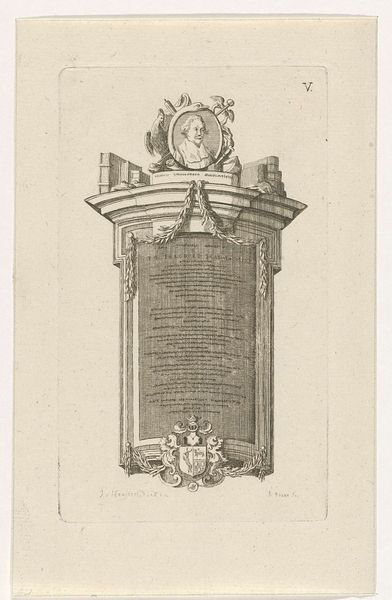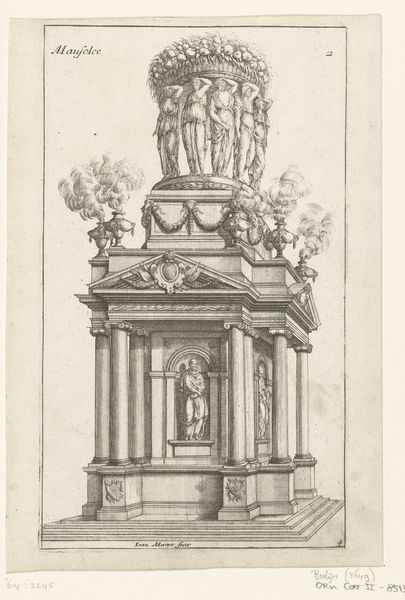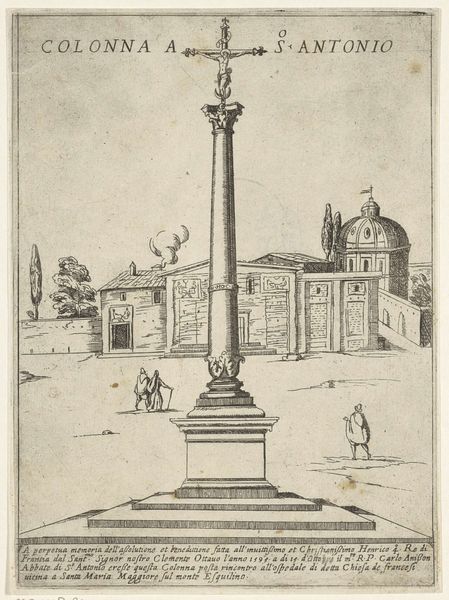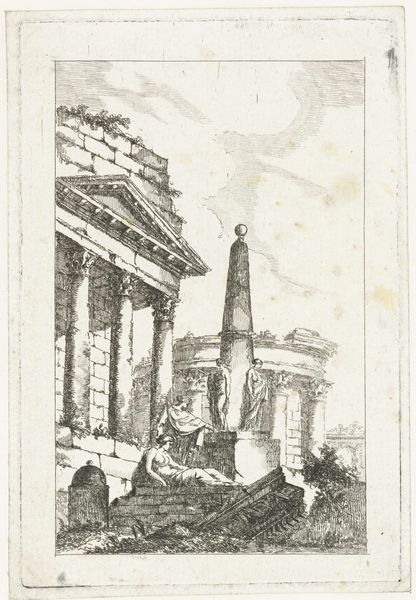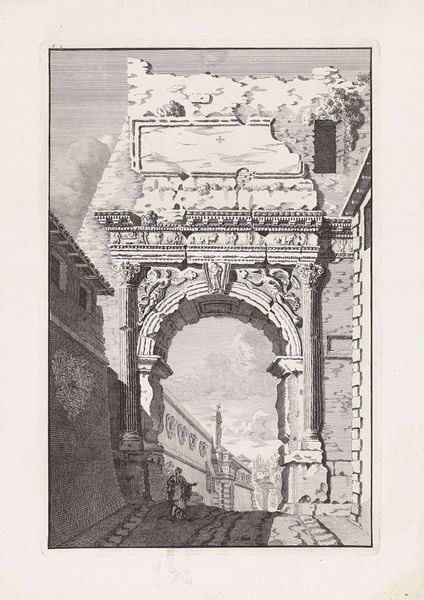
drawing, print, etching, pen, engraving, architecture
#
drawing
#
neoclacissism
# print
#
etching
#
old engraving style
#
landscape
#
pen-ink sketch
#
line
#
pen
#
cityscape
#
engraving
#
architecture
Dimensions: height 175 mm, width 117 mm
Copyright: Rijks Museum: Open Domain
Editor: This etching, "Monument van Lysicrates in Athene" by Antoni Zürcher, likely created between 1765 and 1837, offers such a meticulously detailed depiction of a historical monument. It feels very academic and focused on preservation through documentation. What social implications does it convey to you? Curator: I see this piece as more than just a historical record; it's a statement about power and cultural legacy. Neoclassicism, as we see here, often served to connect contemporary societies with the perceived glory of ancient Greece and Rome. Who benefits from that connection, and whose histories get erased in the process? Editor: So you’re saying this idealization of the past is itself a political act? Curator: Precisely. The monument is presented as an enduring symbol of Western civilization, but who gets to define "civilization"? The focus on European history often marginalizes other cultural contributions. This piece invites us to consider whose narratives are prioritized and why. It raises important questions about cultural appropriation. Editor: That's such a valuable point! I was only seeing the artistic merit, I hadn’t considered the political context. Curator: The choice of representing a historical site using a relatively accessible and reproducible medium—etching and engraving—means wider access for viewers, a sort of democratic dissemination of idealized ancient heritage and architecture. It almost served as an early form of cultural diplomacy. How might this distribution play into notions of cultural superiority of Western society, influencing viewers’ self-conceptions? Editor: This has shifted my perspective considerably. Thank you. Curator: And thank you, for bringing a fresh lens to this piece! Recognizing the embedded power dynamics is essential.
Comments
No comments
Be the first to comment and join the conversation on the ultimate creative platform.
